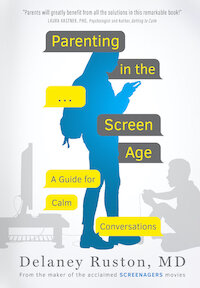
In May 2017, a survey by the Royal Society for Public Health in England revealed that 3 of the 4 most popular social media platforms/apps had a net negative effect on the mental well-being of young people. Surveying nearly 1,500 teenagers and young adults aged 14 to 24 from February through May of 2017, the survey asked about Facebook, Twitter, Instagram, YouTube and Snapchat.
Some questions were on negative experiences and feelings, such as anxiety and depression when using the apps. Other questions were about positive experiences—such as getting emotional support on these sites and the ability for self-expression. Nearly 7 in 10 teens reported receiving support on social media during challenging times. ** See the end for all of the things asked in the survey.
For all of the sites, other than Facebook, the platforms were found to have more of a negative effect on mental well-being than a positive effect. Instagram was the worst—showing that it brings up a lot of feelings of anxiety, depression, loneliness, as well as problems with body image and sleep.
The survey’s authors have called on the social media companies to make changes to help curb these feelings of envy and inadequacy that result in anxiety and depression. Here are a few of those suggestions and how people in the survey thought about these ideas.
For this TTT, check in with your kids about how often they use these social media apps and what feelings come up for them when they do. If your kids are younger, then it can still be a great conversation about what responsibility companies have to their users.
Some talking points to get the conversation going:
** The 14 health and well-being-related issues were:
August 22, 2017
As well as our weekly blog, we publish videos like this one every week on the Screenagers YouTube channel

In May 2017, a survey by the Royal Society for Public Health in England revealed that 3 of the 4 most popular social media platforms/apps had a net negative effect on the mental well-being of young people. Surveying nearly 1,500 teenagers and young adults aged 14 to 24 from February through May of 2017, the survey asked about Facebook, Twitter, Instagram, YouTube and Snapchat.
Some questions were on negative experiences and feelings, such as anxiety and depression when using the apps. Other questions were about positive experiences—such as getting emotional support on these sites and the ability for self-expression. Nearly 7 in 10 teens reported receiving support on social media during challenging times. ** See the end for all of the things asked in the survey.
For all of the sites, other than Facebook, the platforms were found to have more of a negative effect on mental well-being than a positive effect. Instagram was the worst—showing that it brings up a lot of feelings of anxiety, depression, loneliness, as well as problems with body image and sleep.
The survey’s authors have called on the social media companies to make changes to help curb these feelings of envy and inadequacy that result in anxiety and depression. Here are a few of those suggestions and how people in the survey thought about these ideas.
For this TTT, check in with your kids about how often they use these social media apps and what feelings come up for them when they do. If your kids are younger, then it can still be a great conversation about what responsibility companies have to their users.
Some talking points to get the conversation going:
** The 14 health and well-being-related issues were:
August 22, 2017
As well as our weekly blog, we publish videos like this one every week on the Screenagers YouTube channel

A common misconception persists in teenage mental health: Mental health problems primarily come from something happening to a person, i.e., external experiences. But the reality is far more complex, and as a result, many teens find themselves grappling with an unnecessary burden. The truth is that mental health problems often come from inside, without any obvious triggers from external factors. It’s genetics at work causing different biological changes, leading to emotions and thoughts creating havoc in their young selves. In my blog post today, I shed light on an often-overlooked aspect of mental health among adolescents.
READ MORE >
Discover the powerful strategy of a "love ambush" in the quest to become a mental health warrior. Delaney unveils the transformative impact of showing up unannounced to support those facing mental health challenges. Through personal stories and practical advice, she shows listeners (and readers) an approach to combatting isolation and building a caring team for teens who are struggling.
READ MORE >
Today, United States Surgeon General Dr. Vivek Murthy released a new Advisory on social media and youth mental health. Read today's blog for why we must act NOW.
READ MORE >for more like this, DR. DELANEY RUSTON'S NEW BOOK, PARENTING IN THE SCREEN AGE, IS THE DEFINITIVE GUIDE FOR TODAY’S PARENTS. WITH INSIGHTS ON SCREEN TIME FROM RESEARCHERS, INPUT FROM KIDS & TEENS, THIS BOOK IS PACKED WITH SOLUTIONS FOR HOW TO START AND SUSTAIN PRODUCTIVE FAMILY TALKS ABOUT TECHNOLOGY AND IT’S IMPACT ON OUR MENTAL WELLBEING.
